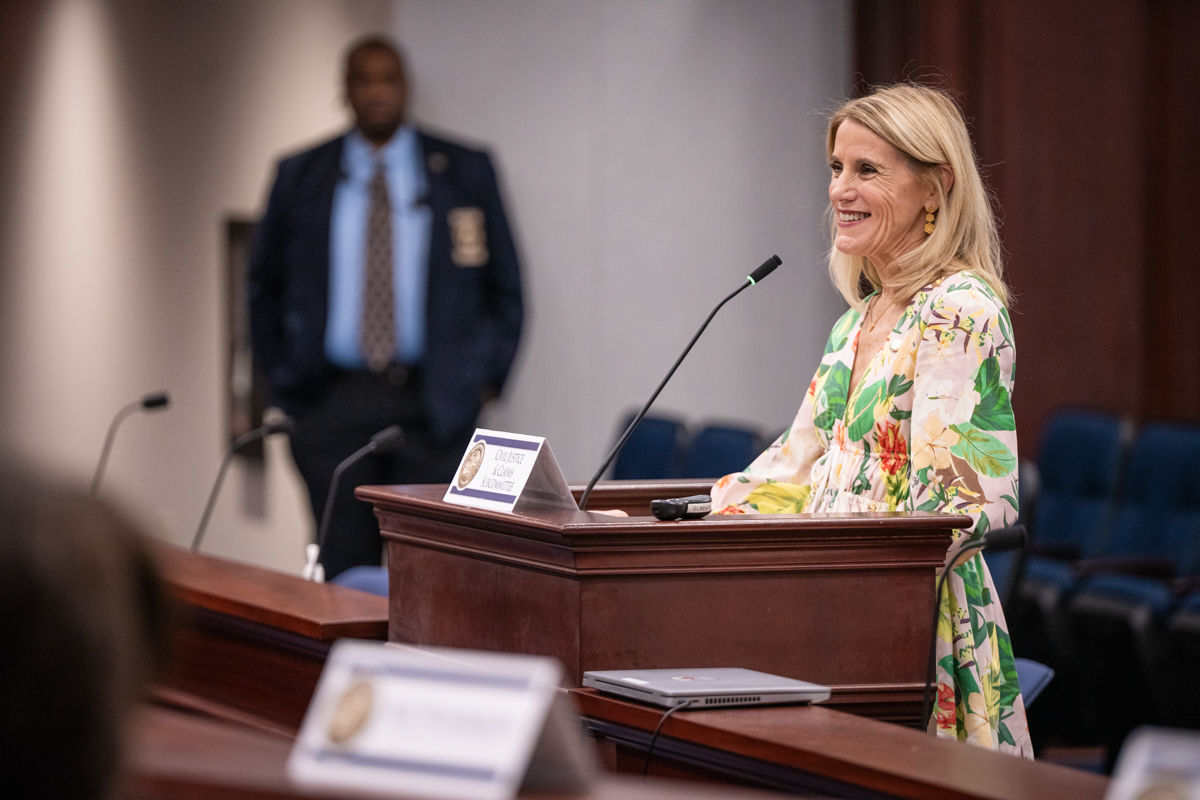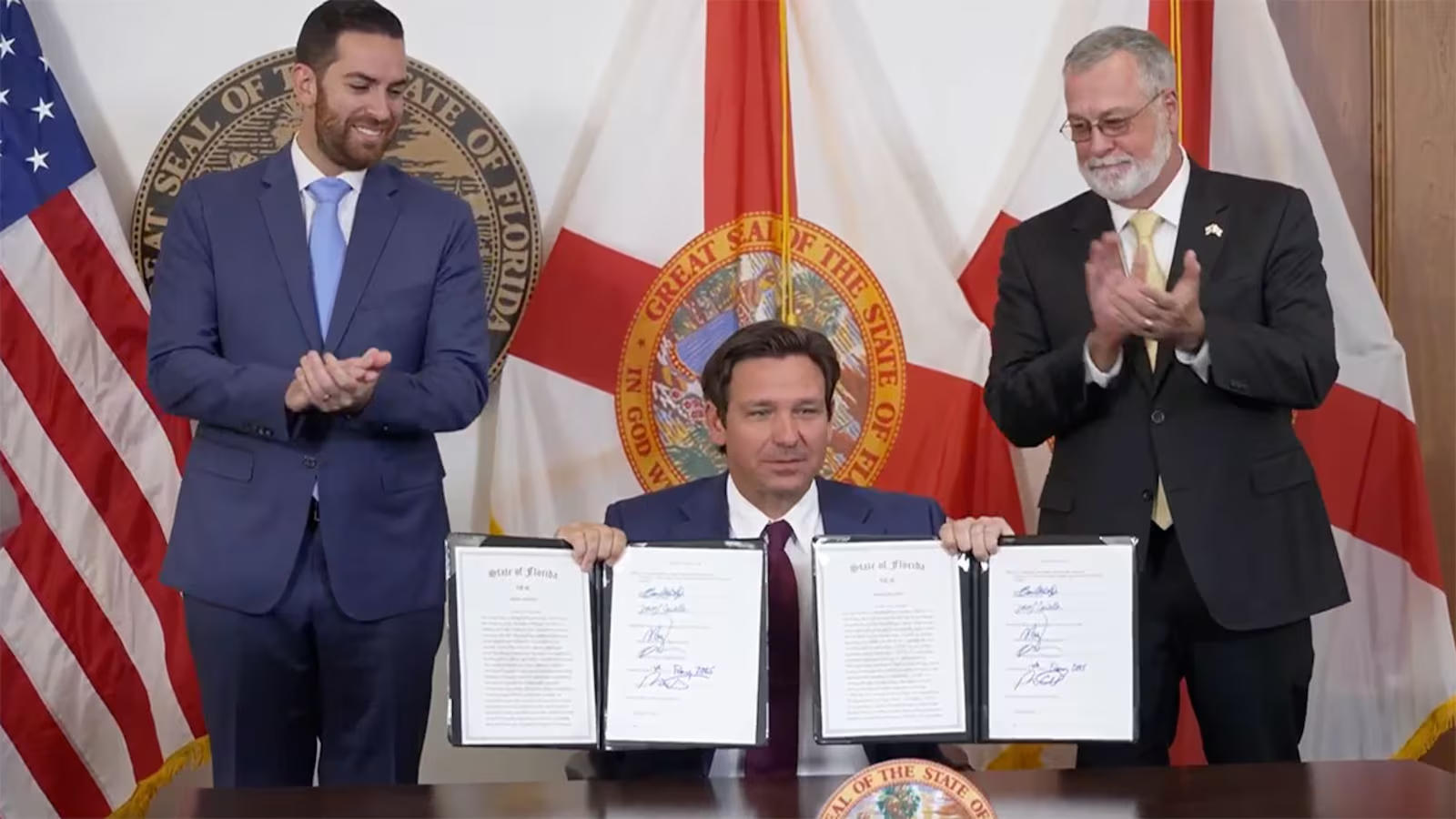For the past two years, Rep. Vicki Lopez made condo reform her top focus in Tallahassee. She’s still pursuing that effort this year, but she’s also carrying legislation to ensure Florida’s waters are as safe as its shores.
One bill (HB 289) has already cleared the House unanimously and awaits a vote in the Senate. Another (HB 481) received uniform support in both of its committees and pends a full vote by the lower chamber.
HB 289 is titled “Lucy’s Law” after 17-year-old Miami high schooler Luciana Fernandez, who died in a September 2022 boat crash that injured several other passengers. If passed, the measure would make it a third-degree felony to leave the scene of a waterborne accident that hurts someone.
Leaving an accident that causes a serious bodily injury would increase the charge to a second-degree felony, while leaving a fatal crash would be a first-degree felony.
Third-, second- and first-degree felonies are punishable by up to five, 15 and 30 years in prison, respectively, with fines of between $5,000 and $10,000.
The bill, which Lopez is sponsoring with fellow Republican Rep. Vanessa Oliver, would also maintain boating safety education requirements and criminalize knowingly providing false information on boat reports as a misdemeanor.
Lopez, a Miami lawmaker, has stressed that the impact of HB 289 will extend far beyond Miami-Dade County’s bounds.
“This will help every single boater and every single person who enjoys the waters throughout our state,” she said.
She commended Fernandez’s family, who spoke to lawmakers during the committee process about the importance of “Lucy’s Law” and turning their pain into a positive change for Florida.
“They seemingly have taken a tragedy and have determined that Lucy would not die in vain, that her memory would (help) all know that it is absolute mayhem on the water,” she said.
HB 289’s upper-chamber companion (SB 628) by Fort Myers Republican Sen. Jonathan Martin has also received nothing but “yes” votes. It has only the Senate Fiscal Policy Committee to clear before going to a floor vote.
HB 481, meanwhile, addresses mooring regulation. The bill and its Senate analog (SB 866), also by Martin, would enable counties with 1.5 million residents or more — Miami-Dade, Broward, Hillsborough and Palm Beach, currently — to regulate vessels that anchor overnight within their jurisdiction, among other things.
Lopez said in a statement that increased congestion in Florida’s waterways, environmental damage and safety risks “demand decisive action,” and HB 481 is just that.
“Current regulation leaves gaps that threaten the well-being of boaters and the health of our marine ecosystem. HB 481 addresses these issues by empowering local governments to establish stricter anchoring zones in heavily impacted regions … reduces anchoring periods in designated areas and expands protections to critical environmental zones and sensitive waterways,” she said.
“This important piece of legislation is essential to preserving Florida’s waterways for generations to come. It reflects our commitment to sustainable marine practices, community safety, and responsible waterway stewardship. By enacting these measures, we send a clear message: safeguarding our natural resources and protecting the boating community are top priorities.”
Lopez has proven an effective, moderate policymaker since winning her House District 113 seat in 2022. In her freshman House term, she passed well over half her bills, including 75% of those she carried this past Session.
Some were ambitious proposals. She was the House sponsor for the Live Local Act, a seismic measure meant to address Florida’s affordable housing shortage that critics argued preempted local growth controls while giving too much to developers.
She also tackled the thankless task of fixing the state’s post-Surfside condo safety law, which still needs more work, and created a pilot program that extended home-hardening grants to condo owners.
Her legislative victories, including nearly $26 million in appropriations, came despite her votes against her party’s six-week abortion ban and proposal to roll back age restrictions on long rifle purchases the Legislature passed after the 2018 Parkland massacre.
She won re-election in November with 55% of the vote.
___
Janelle Irwin Taylor and Ryan Nicol of Florida Politics contributed to this report.
Post Views: 0

 Entertainment8 years ago
Entertainment8 years ago
 Politics8 years ago
Politics8 years ago
 Entertainment8 years ago
Entertainment8 years ago
 Entertainment8 years ago
Entertainment8 years ago
 Tech8 years ago
Tech8 years ago
 Tech8 years ago
Tech8 years ago
 Tech8 years ago
Tech8 years ago
 Politics8 years ago
Politics8 years ago










